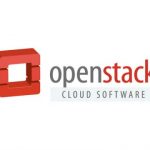Cisco and Microsoft team up on Internet of Things solutions

Cisco has made a couple of interesting announcements in its IoT space, including a new hardware platform and a collaboration with Microsoft on hybrid IoT solutions.
There are three new components to the Cisco IoT Operations Platform: Connection Management at Scale, Fog Computing and Data Delivery.
Security providers should consider offering DDoS protection as a service

Need a new business idea? How about you start offering DDoS protection as a service? What, you think it wouldn't work? Think again. A new report by Corero Network Security says it could work out nicely.
Out of its respondents, 82 percent see a "clear business opportunity" in providing DDoS protection as a service to its customers. Also, 93 percent see providing DDoS mitigation in relation to other types of security services as "high priority." This is up 10 percent compared to last year.
PC market could return to growth in 2019

The success of Windows 10 and the reception Microsoft's latest operating system has had from consumers could mean that the PC market will grow again in 2019.
IDC's latest Worldwide Quarterly Personal Computing Device Tracker has offered new insight as to why the firm believes the PC market is set for a growth period a few years from now.
Huawei Honor 8: Impressive, but lacks appeal [Review]

The Honor 8 Pro is the latest premium smartphone from the Chinese manufacturer, best known as an offshoot of tech titan Huawei.
The company has grown hugely in the past few years as it looks to offer customers an alternative to the typical Apple or Samsung handsets, offering powerful hardware at a more affordable price.
Enterprise Resource Planning from an IT perspective

One of the greatest advantages of Enterprise Resource Planning (ERP) software is that it’s designed to be used throughout all departments of your company, from product planning and sales to inventory maintenance and accounting.
Combining your company’s processes into one cohesive system eliminates data silos, and reduces manual processes. ERP provides a unified platform that helps departments intercommunicate, allowing your business to run more efficiently.
Consumers expect mobile devices to transform

When Microsoft says we'll be holding much more than a mere smartphone in our palms in a few years, they weren't exaggerating. A new Gemalto survey says that by 2025, consumers expect mobile devices to become much more than what they are today.
They expect the mobile device to be their ID tool, maybe even their passport. They expect the device to autonomously control their home, they expect to use it as a payment tool, and as a banking device, as well.
Ransomware revenue rises to $1bn
UK businesses want to increase adoption of cloud services

The adoption of cloud technologies in a company is becoming a key function of many company’s technology strategy.
Almost nine in ten (88 percent) of UK businesses have adopted cloud to some extent, the report says, adding that two thirds (67 percent) of users expect to increase the adoption of cloud services in the near future, according to a new report by the Cloud Industry Forum (CIF)
An insider's perspective: A mutually beneficial internship program

Growing businesses are looking to hire talent that is sharp, motivated and can easily fit into existing company culture. It’s the matter of finding that talent that can cost companies a lot of money. Consider the resources invested in the initial search, the offer period, the onboarding time and the "trial run," which usually lasts three months. If after all that, a candidate is a perfect fit -- wonderful, onwards! -- but many times it’s not and both the company and new employee are frustrated it didn’t work out.
In order to avoid all that drama, I’ve included a look into what worked for our company, from finding the right candidate, to making sure they felt as comfortable jumping into an intern program as we did, and the benefits of this program that continue to pay off. The basis of the program is a mutually-beneficial approach to hiring that has worked out for both my company and the interns we hire.
UK businesses less prepared for GDPR than European counterparts

The new GDPR legislation is now just a year away from coming in to force, but new research claims that British businesses are not nearly as prepared as expected.
A study by Blancco Technology Group reveals that the UK is significantly less prepared than its European counterparts, with companies lagging behind the rest of the continent.
XData ransomware starts wreaking havoc

The dust hasn’t even settled around WannaCry, another ransomware appears. This one was detected by ESET and identified as Win32/Filecoder.AESNI.C.
Security researchers dubbed it XData ransomware. It appears mostly in Ukraine (96 percent of cases). The outbreak seems to have started on May 17, reaching its peak on May 19.
Most UK businesses feel vulnerable to cyber threats, despite increased security spending

According to Thales' new report almost two thirds (63 percent) of businesses in the UK increased their cyber security spending this year, which is a jump from last year's 54 percent.
However, despite this, 43 percent were breached last year (Thales fails to mention the percentage difference compared to a year earlier, though). More than four fifths (84 percent) still feel vulnerable to threats, with 20 percent feeling "very" or "extremely" vulnerable.
IoT data threats and other issues global companies face as GDPR nears

While the E.U.’s General Data Protection Regulation (GDPR) won’t take full effect until May 25 2018, multi-national companies do need to take thoughtful action now to be certain their E.U.-based operations will be fully compliant when the time comes.
With WannaCry, the world’s largest ransomware attack fresh in their minds, most global businesses are hyper-focused on data security in formulating responses to GDPR. However, many are less well organized in their approach to the data privacy issues related to the new regulation. The lack of a well-formulated approach should give global companies pause though, particularly because the definition of data privacy under GDPR is especially broad, and because harnessing IoT data can be very challenging.
Microsoft buys cybersecurity startup Hexadite

Microsoft is rumored to have acquired Israeli cybersecurity startup Hexadite in a deal worth around $100 million.
The startup was founded in 2014 and its primary focus is identifying cyberattacks through the use of artificial intelligence (AI). By connecting a number of cybersecurity detection systems that are already in place, Hexadite then uses AI to analyze threats automatically as they present themselves.
OpenStack services monitoring: Challenges and solutions

If you have previously worked with cloud platforms, you will be familiar with the distributed and decoupled nature of these systems. A decoupled distributed system relies on microservices to carry out specific tasks, each one exposing its own REST (Representational State Transfer) APIs. These microservices talk to each other through a lightweight messaging layer usually in the form of a message broker such as RabbitMQ or QPID.
This is precisely how OpenStack works. Each major OpenStack component (Keystone, Glance, Cinder, Neutron, Nova, etc.) exposes a REST endpoint and the components and sub-components communicate via a message broker layer, such as RabbitMQ. The benefits of this approach are first that it allows failures to be allocated to specific components, and second that cloud infrastructure operators can scale all services in a horizontal fashion and intelligently distribute the load.
BetaNews, your source for breaking tech news, reviews, and in-depth reporting since 1998.
© 1998-2025 BetaNews, Inc. All Rights Reserved. About Us - Privacy Policy - Cookie Policy - Sitemap.

